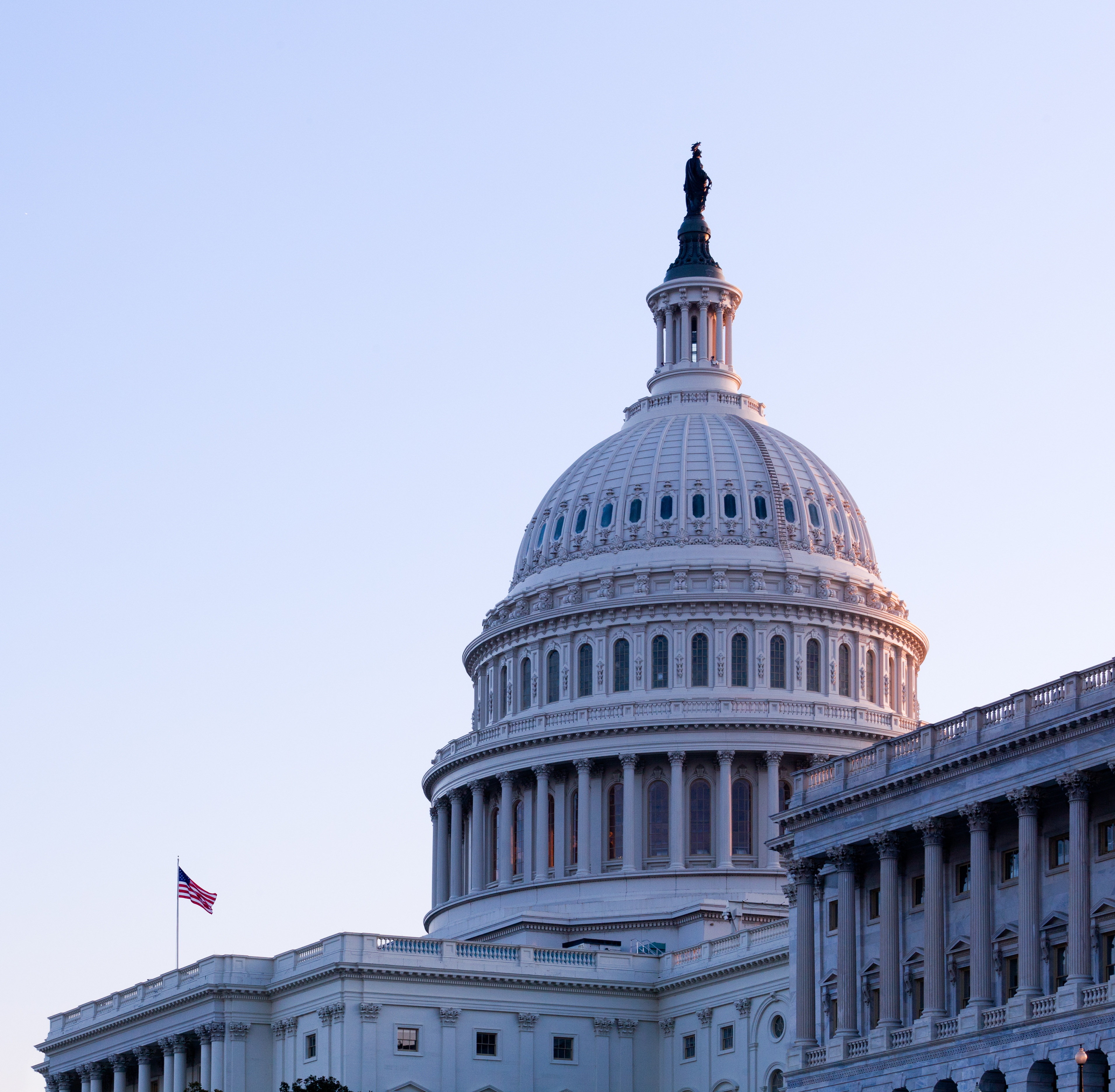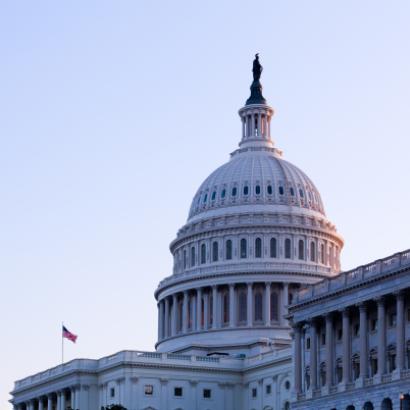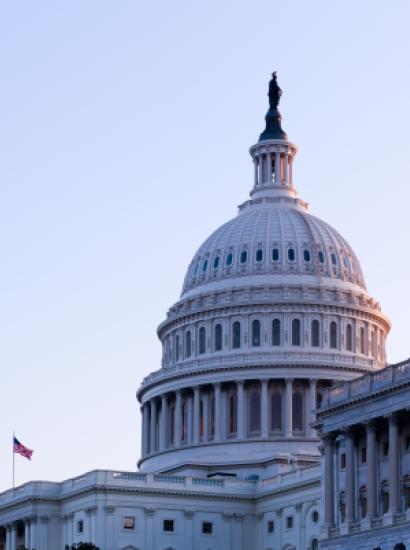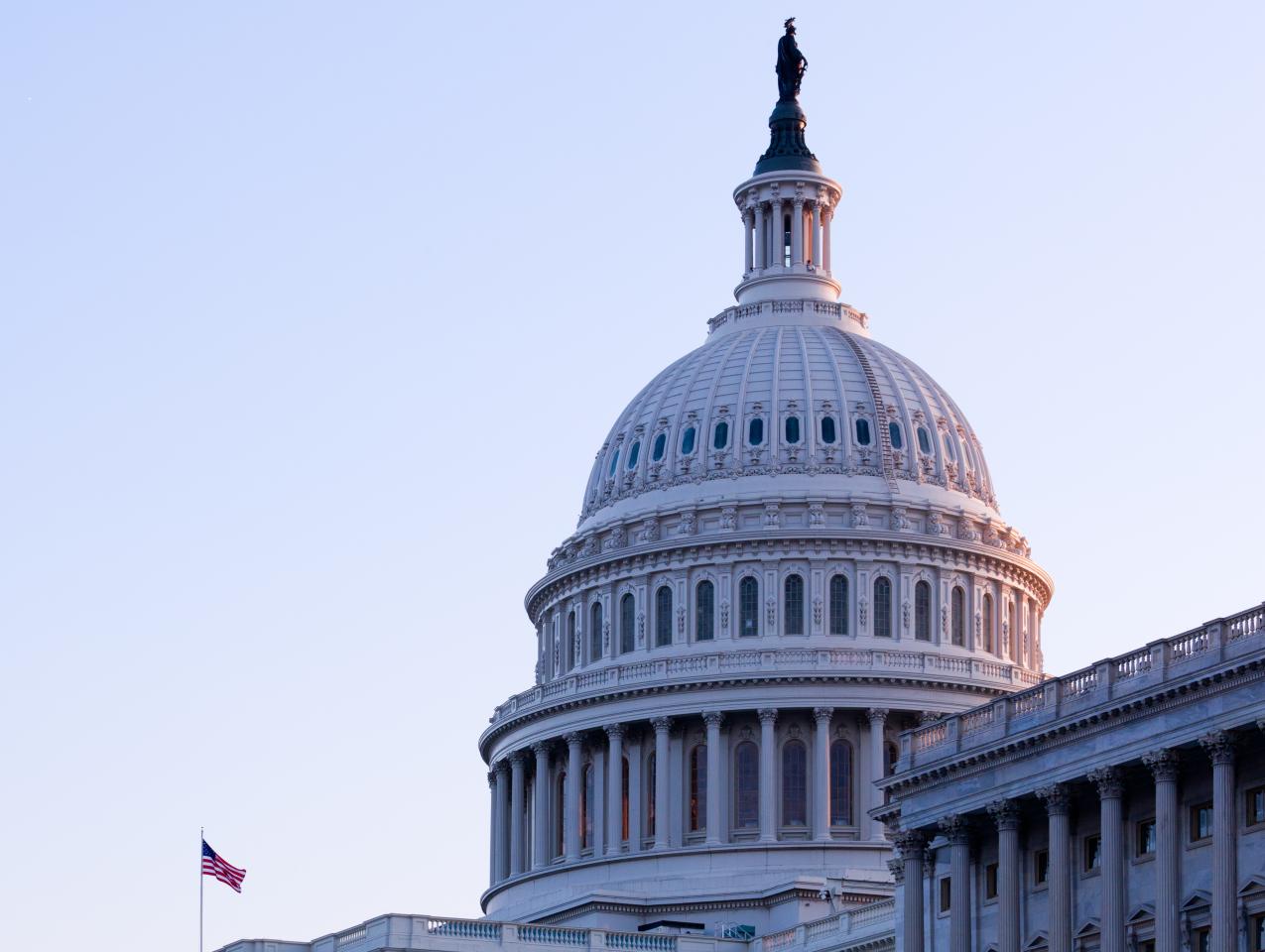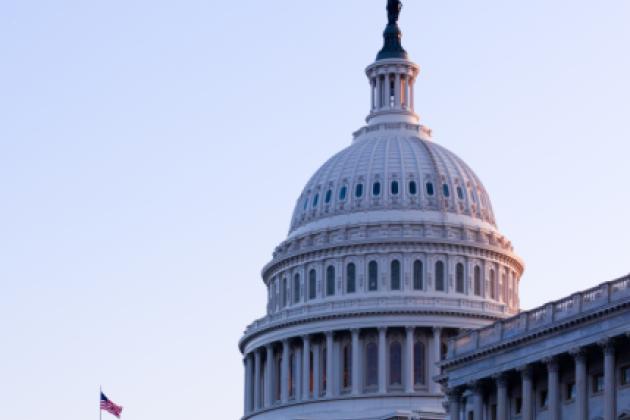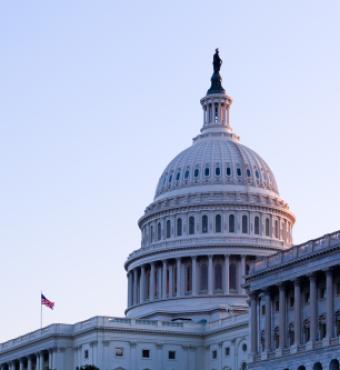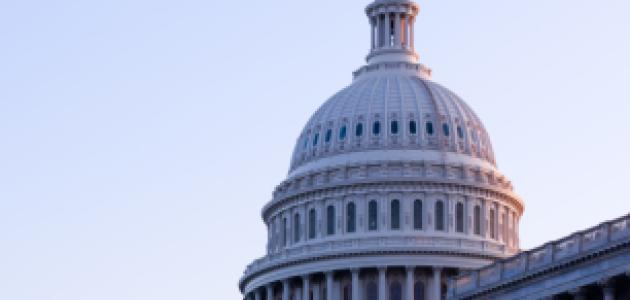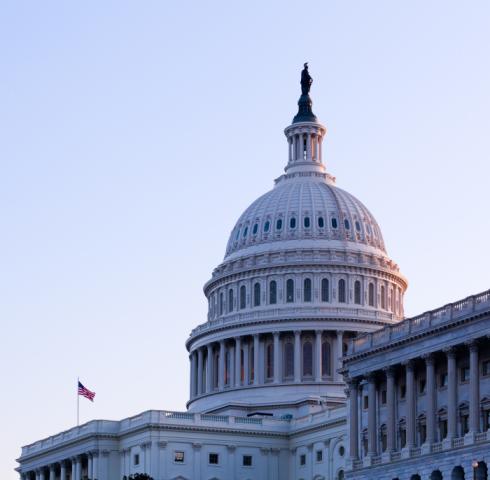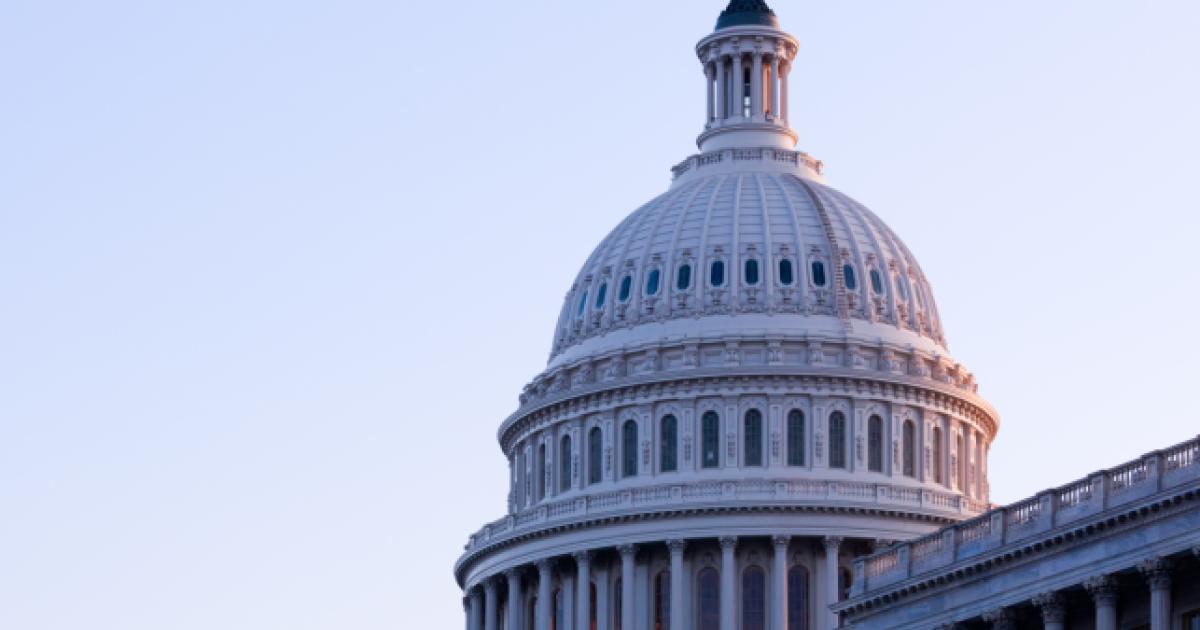- Politics, Institutions, and Public Opinion
- Revitalizing American Institutions
The Hoover Institution’s new Center for Revitalizing American Institutions explores the crisis in trust facing American institutions and find solutions. The Center hosts its inaugural conference November 30 and December 1 at Stanford University, featuring a conversation among Maryland Governor Wes Moore (D), New Hampshire Governor Chris Sununu (R), and Hoover Institution Director Condoleezza Rice. In this preview, the Center’s director, Brandice Canes-Wrone, the Maurice R. Greenberg Senior Fellow at the Hoover Institution and a professor in Stanford’s political-science department in the School of Humanities and Sciences, lays out the Center’s goals and direction:
Jonathan Movroydis: What is the mission of the Center for Revitalizing American Institutions, and why now?
Brandice Canes-Wrone: Confidence in American institutions has declined for decades and continues to decline. The trend isn’t simply a partisan phenomenon, nor explained by a particular set of presidents. This development influences how effectively our institutions can handle an emergency or even run day-to-day, thereby compromising their missions. Our purpose is to understand the reasons for the crisis in trust, understand how institutions are operating today, evaluate proposals for reform, and offer potential alternative reforms suggested by our analysis.
Movroydis: What are the roots of the low trust and confidence in our institutions?
Canes-Wrone: There are a variety of causes, so your question entails a large research agenda. Certainly, polarization is a factor, although, again, this is not simply a trend whereby Republicans don’t trust Democrats when they’re in power and Democrats don’t trust Republicans when they’re in power. There’s been a decrease even among those whose party is in power, and a large drop among independents.
We’re interested in investigating—and here I want to be cautious in not prejudging the conclusion—the role of developments in the media. These developments include a variety of changes such as the rise of social media and the decrease in local news. Citizens used to receive a lot of information about government, particularly their own members of Congress, from local and state news, and there’s been a large decline in coverage as well as the number of local outlets. Citizens aren’t receiving the same information they were receiving thirty years ago, and in some cases, that’s been filled in by what comes over social media.
Separately, we know that civics education in this country also has experienced a decline. The number of schools offering civics classes, as well as the role of civics in the curriculum, is not what it was. And you see these results. Fewer than 1 in 4 eighth-graders in the United States are proficient in US history or civics, according to the nonpartisan National Assessment of Educational Progress. One component of the Center will be to look at what’s happening in civics education in the country and offer potential solutions there.
Movroydis: The center has three main themes: governmental institutions, organization democratic practice, and democratic citizenship. Let’s talk about what these three mean and how you distinguish them, beginning with governmental institutions.
Canes-Wrone: The first one is about what we might think of as formal governmental bodies, for instance Congress, the executive branch, the courts, state and local governmental bodies, the military, and executive agencies. We’ll consider topics such as, how has the balance of power between the presidency and Congress changed over time? To what extent do Congress and our state legislatures reflect the preferences of their constituents? And what reforms might increase the effectiveness of these institutions?
Movroydis: What about organizations and democratic practice?
Brandice Canes-Wrone: Here, we’re thinking about organizations that are outside the government but nonetheless critical to a well-functioning democracy and correspondingly, the practices that affect how the democracy operates. Examples of organizations include the media, interest groups, and even universities, and examples of practices include how elections are administered and what constitutes freedom of speech. We’ll consider topics such as, what are the most effective policies and practices for ensuring the integrity of and participation in our elections? How have developments in the media shaped public discourse? And what role do universities have in creating a healthy democracy?
Movroydis: And democratic citizenship?
Canes-Wrone: Democratic citizenship is at the level of the individual. It’s the individual’s political beliefs, preferences, and responsibilities in a democratic society, particularly with respect to the individual’s relationship with democratic institutions. So, one part of the theme will consider public opinion and participation. Another part will relate to the civic-education piece I mentioned earlier in terms of how citizens become informed about democratic processes and their own rights and responsibilities.
So, if you think about the three themes, you have formal government bodies; you have informal democratic organizations and practices that foster democratic competition and innovation; and then you have citizens—the individual holding the government accountable by becoming active and engaged.
Movroydis: How does the Center plan to do its research and communicate it to policy makers and other stakeholders?
Canes-Wrone: We think of the Center for Revitalizing American Institutions as having three primary audiences. The first is the research community. We believe strongly that research—nonpartisan, fact-based research—is a vitally important contribution to understanding American institutions. Our second audience is what we might call the attentive public. That would include policy makers and those who follow policy closely, as well as the media. And the third is the civic-education field, with a broad aim of influencing civic education.
We have a number of affiliated faculty with incredibly exciting projects. For instance, Hoover fellow and political science professor Justin Grimmer and Hoover fellow Ben Ginsberg are working on a major project about trust in elections and election administration. They have conferences and other events planned that are designed to build on their research about how to make our elections work as well as possible. Their goals are to influence election administration officials in terms of adopting reforms that will build trust in elections, as well as to influence voters in terms of understanding how elections work and taking on myths about how the electoral process operates in practice. Another project, led by Hoover fellow Jack Goldsmith, focuses on the administrative state. This project has produced a series of recently published papers about the role of executive power in the administrative state, its growth, and potential areas for reform. Hoover fellow and a professor of political science and classics in H&S Josiah Ober is leading an effort to think about the role of civics in college curricula around the country. He’s been very involved in that issue at Stanford and is convening others around the country to bring what we’ve learned at Stanford to a wide range of universities, from small liberal arts colleges to large state institutions. And we have a large survey being led by Doug Rivers, a Hoover fellow and political science professor in H&S, and Hoover emeritus fellow David Brady, which will be a panel survey about the 2024 elections that seeks to provide new information both to scholars and the broader public about what affects individuals’ votes and preferences.
One more: we’re co-funding a project by Robb Willer, a sociology professor in H&S, relating to the topic of democratic practice. He’ll be working with Governor Spencer Cox of Utah. Governor Cox is the head of the National Governors Association and is trying to encourage gubernatorial candidates to pledge in bipartisan ads that they believe in their state’s election administration and will accept the election outcomes. Governor Cox himself did this with his Democratic opponent in the previous Utah gubernatorial election. Robb is planning to test the effects of these ads as they roll out in 2024. These are just some of the projects under way for the next year.
Movroydis: The Center is about to have its inaugural conference. Could you talk about what the conference is supposed to achieve, and why the perspectives of these two governors—a Republican and a Democrat—are important to have?
Brandice Canes-Wrone: The Center is looking for solutions that extend beyond specific parties. I think having a bipartisan event at the start of our public launch is particularly appropriate. RAI is interested in what works, and one thing we haven’t talked about yet is that the public’s trust in state and local governments is an exception to the general decline in trust. Citizens tend to be much more supportive of their state and local governments. Amid the general crisis in confidence, it makes sense to think about why things are working at least better in the states and localities than at the national level. And both Governor Moore and Governor Sununu have been successful governors who have not only been supported by their parties but have also produced bipartisan policy successes that have brought important improvements to their states.
One of the important features of RAI, consistent with the bipartisanship of the initial panel, is—and to me, this is always at the heart of any scholarly work—to be very open to alternative ideas and be willing to defend your own through discussion.
RAI is a Hoover-funded institution. We share Hoover’s commitment to individual freedom, and that’s part of our mission. But when it comes to a specific topic, such as the best way to revitalize Congress, that’s something we’re studying; it’s not something to which we already know the answer. We look forward to incorporating different ideas on this and all our topics.







